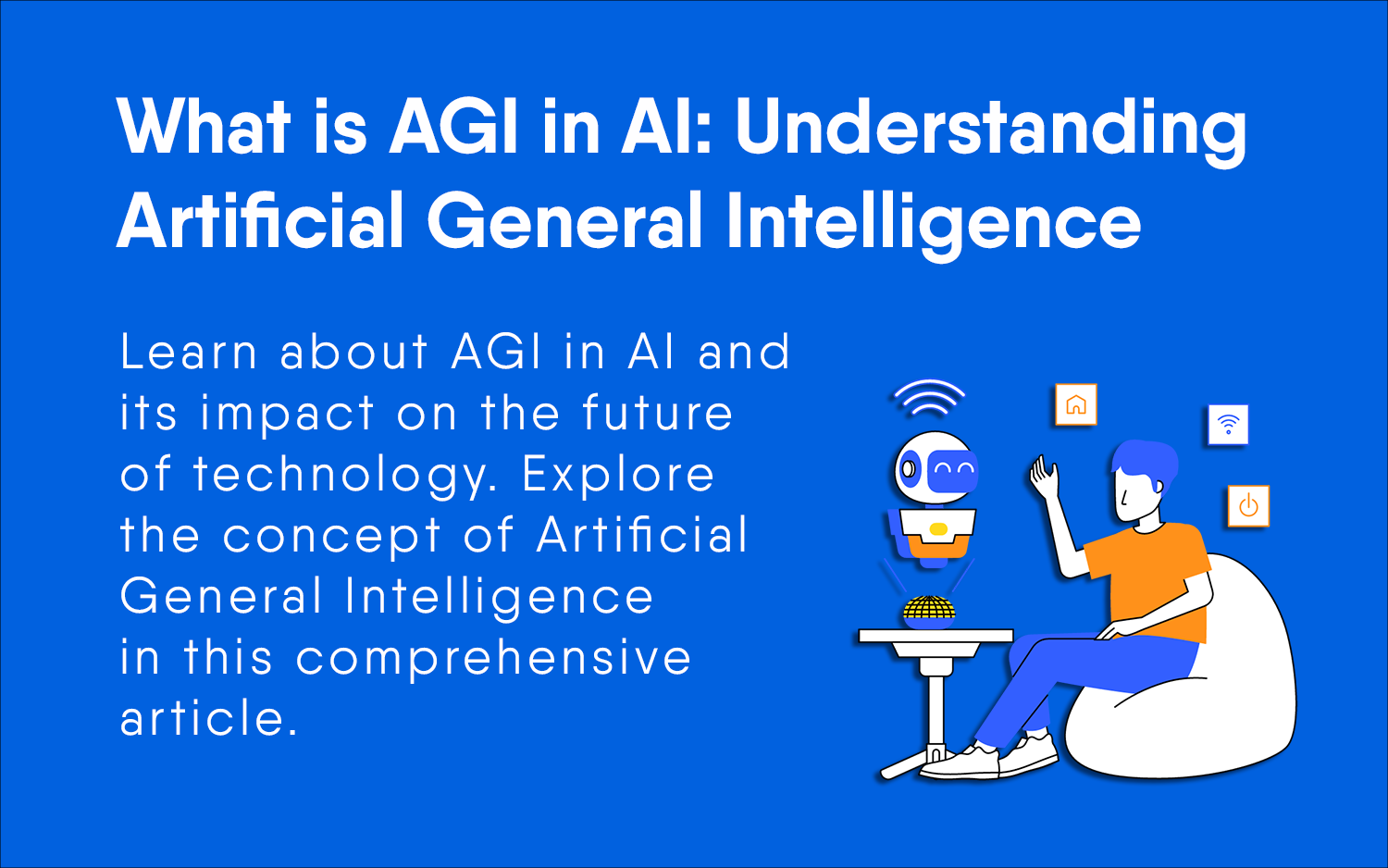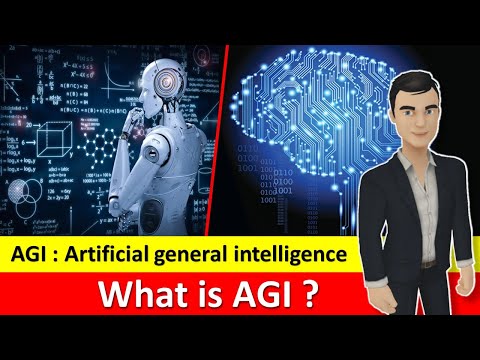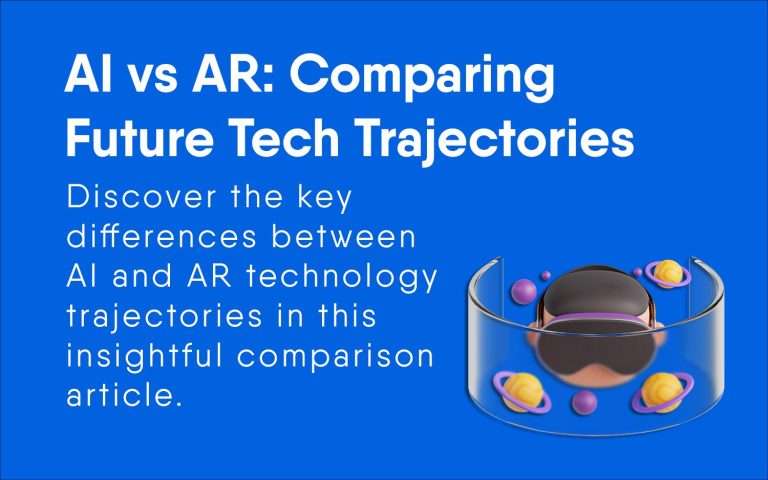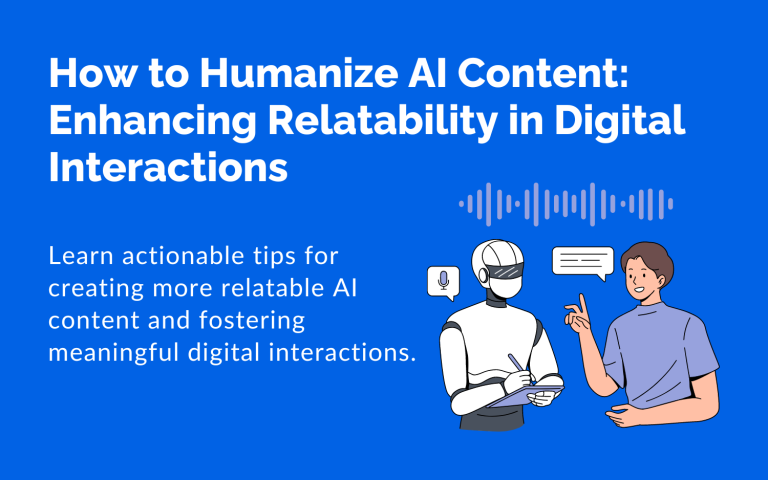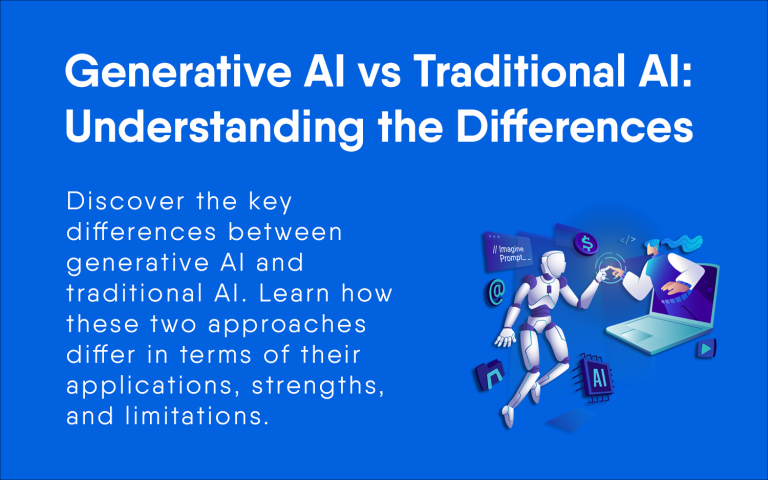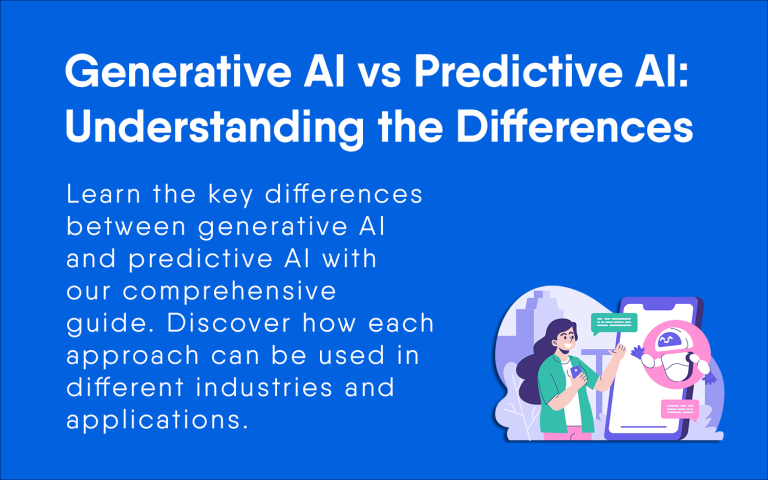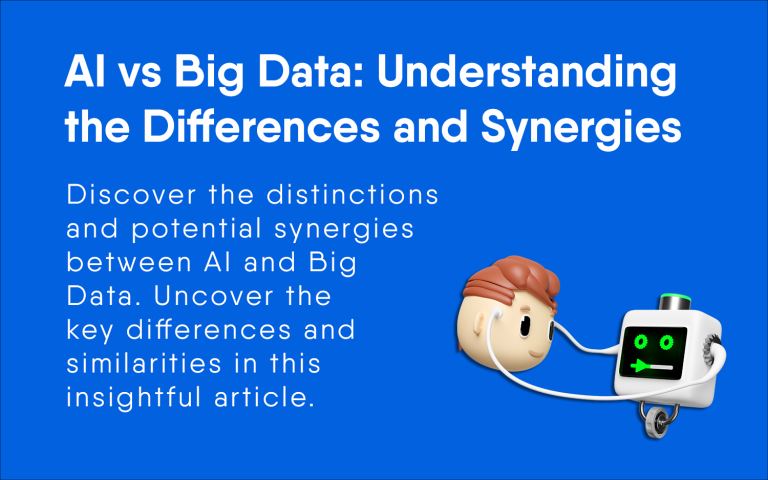What is AGI in AI: Understanding Artificial General Intelligence
Artificial General Intelligence (AGI) is an advancing field, in Artificial Intelligence (AI) that aims to develop machines capable of independently completing various tasks without human intervention. Unlike AI, which focuses on tasks AGI seeks to create machines that can reason, plan learn and comprehend natural language similar to humans.

Understanding AGI is essential to grasp its impact on society. It has the potential to revolutionize our lives and work by automating tasks that were traditionally performed manually by humans. However it also raises societal concerns such as job displacement and the potential misuse of AI technologies. Therefore having an understanding of AGI and its possible consequences is crucial.
Key Takeaways
- AGI refers to machines of performing tasks beyond human or animal capabilities.
- AGI has the potential to transform our lifestyle and employment by automating tasks.
- Ethical issues such as job displacement and misuse need to be considered in relation, to AGI.
Understanding AGI
Artificial General Intelligence (AGI) is an approach, to intelligence that aims to create machines of performing any intellectual task just like humans. AGI is different from Narrow AI or Weak AI which are designed for tasks or problems without encompassing the range of human cognitive abilities.
Differentiating AGI from Narrow AI
Artificial General Intelligence also known as Strong or General AI focuses on developing machines that can reason, learn and comprehend issues to real life situations. In contrast Narrow AI programs specialize in tasks such as playing chess or driving cars. The goal of AGI is to create machines that can undertake any task performed by humans the name Strong or General AI.
The Journey Towards AGI
Achieving Artificial General Intelligence is an ongoing process. While Narrow AI has made progress in years AGI still remains a distant goal as researchers strive to understand human intelligence and replicate it in machines.
The Role of Learning and Reasoning in AGI
For AGI systems to operate successfully they must possess the ability to learn and reason. These machines should be able to draw on experiences while also adapting quickly to emerging situations. They should be capable of solving problems, with uncertain information and making confident decisions.
In conclusion Artificial General Intelligence (AGI) aims to develop machines of performing any task that humans can do. Unlike Narrow AI AGI focuses on designing computers that can reason, learn and understand problems. However progress, in AGI has been gradual far with learning and reasoning being aspects of AGI systems.
Related Posts:
- Conversational AI vs Generative AI: Understanding the Differences
- Generative AI vs Predictive AI: Understanding the Differences
- Generative AI vs Traditional AI: Understanding the Differences
The Impact of AGI

Artificial General Intelligence (AGI) is an emerging field of technology with potential to revolutionize our lives. While there are benefits to AGI it is crucial to carefully assess the associated risks and challenges as it continues to evolve. Regulatory and control concerns regarding AGI implementation should also be taken into consideration.
Potential Benefits
One significant advantage of Artificial General Intelligence is its ability to automate human operated jobs that currently consume human time. This automation could lead to increased productivity and efficiency reduced business expenses. Even pave the way for the creation of technologies and previously impossible products.
Another potential benefit of AGI lies in its capacity to enhance healthcare delivery. By leveraging AGIs capabilities, new treatments and cures for diseases could be developed while simultaneously improving accuracy and speed, in diagnoses.
AI has the potential to revolutionize fields, including healthcare. It could contribute to the development of devices and technologies that enhance patient experiences and reduce healthcare expenses.
Associated Risks and Challenges
However we must acknowledge the risks and challenges associated with Artificial General Intelligence (AGI). One major concern is the possibility of AGI being utilized for warfare or destructive purposes without oversight. The creation of weapons that make independent decisions may compromise control in ways.
Another critical risk is job displacement and economic disruption caused by automation. As more tasks become automated there is a risk of unemployment, among workers leading to increased inequality and social unrest in society.
Regulation and Control of AGI
To address these risks effectively it is crucial to establish regulations and controls for AGI. Governments and organizations should collaborate to develop use regulations aimed at preventing misuse of AGI in warfare or discrimination, against groups.
While AGI has the potential to bring benefits to society it is vital that we carefully consider these associated risks and challenges. We must prioritize development and responsible use of AGI by implementing regulatory measures.
Related Posts:
Key Players in AGI Research

Artificial General Intelligence (AGI) is a field of research that has the potential to transform industries and aspects of our daily lives. AGI represents an advancement, in Artificial Intelligence aiming to create machines that can perform any intellectual task humans are capable of. Once AGI reaches its potential it could revolutionize our experiences!
Organizations and AI Systems
When it comes to organizations and AI systems involved in AGI research OpenAI stands out as one of the leading players. Co founded by Sam Altman and Elon Musk OpenAI has gained recognition within the AI community for their GPT 3 and GPT 4 large language models (LLMs). Another notable player is Google DeepMind focused on AGI research with an emphasis on developing AIs that can learn from experience and make decisions in environments. Microsoft Research is also making progress, with transfer learning capabilities as part of their AGI development efforts.
Notable Researchers and Thought Leaders
AGI research owes much to the contributions of researchers. Thought leaders who have made significant impacts in the field.Ben Goertzel is a figure, in the AGI community. He shares the belief with Yoshua Bengio from SingularityNET that AI will eventually achieve AGI. Both Yoshua Bengio and Ilya Sutskever, who are based at the University of Toronto are pioneers in learning. Have made significant contributions to AI algorithms throughout their careers. Shane Legg from DeepMind has also made contributions to AGI research.
Conclusion
In conclusion Artificial General Intelligence is a field of research that requires collaboration, among organizations and individuals. The progress made in AGI recently is impressive. As AI systems continue to advance we can anticipate breakthroughs in the near future.

Faisal Rafique
I’m an accomplished entrepreneur and content creator with a strong background in technology and software engineering. My expertise spans web development, eCommerce, programming, hosting management, technical support, and data science. I hold a Master’s Degree in Computer Science and Engineering, and I have over 5 years of professional experience, which I leverage to grow my digital business and popular blog, FaisalRafique.com

